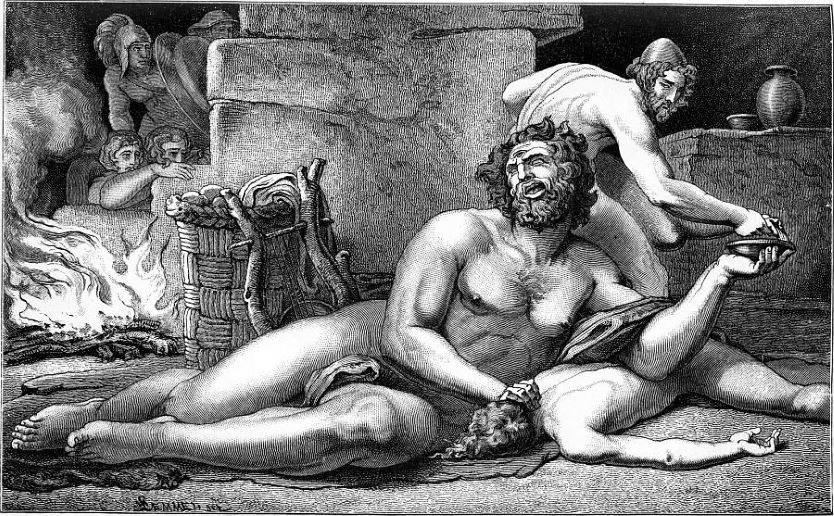This summer, I moved to Virginia. When I arrived, my running was limited, due to both internal and external constraints. My internal constraint was a baby. I was seven months pregnant. My external constraints were family and work. I spent a lot of time with my husband and toddler. I was also starting a new position at a different university. I needed to prepare for my courses and make progress on research projects before the busyness of the fall semester began.
For these reasons, I ran slower than usual. I did speedwork, but I ran as fast as a manatee flopping around on land. My runs were also shorter, except for on weekends when I budgeted extra time to be outside. I became a weekend warrior.
These adjustments to my running — limited doses, at limited times — were sometimes unwelcome. I never particularly enjoy stepping back from competitive racing. I always miss running hard and having the freedom to see how long I can endure. Even so, this summer I also looked happily upon my constraints — not as limitations, but as higher loves in my life, deserving my energy and attention in this season of life. Furthermore, the time away from competition afforded me perspective on what was important so that when I re-enter the sport competitively, I can do so in a more balanced way.

Sabrina Little, adjusting to a different pace last summer, while pregnant with her second daughter. Photo courtesy of Sabrina Little.
Theodore Roosevelt
There was a speech delivered by Theodore Roosevelt in 1910 that athletes love to quote. The relevant section begins as follows:
“It is not the critic who counts; not the man who points out how the strong man stumbles, or where the doer of deeds could have done them better. The credit belongs to the man who is actually in the arena, whose face is marred by dust and sweat and blood; who strives valiantly; who errs, who comes short again and again (1) …”
Roosevelt’s speech concerns the responsibilities of citizenship. Unlike in a monarchy or an oligarchy, wherein one or a few people rule, citizens in a republic are the ones who effect change. Roosevelt called upon citizens to stand up for what they believed in, and to do the work required of them, even if they faced disapproval. Only the opinions of those similarly engaged in the difficult work of citizenship should be heeded.
Athletes love this passage, and it is easy to see why. Armchair quarterbacks and couch marathoners regularly criticize athletes for their choices and performances. These critics often lack the perspective of the athletes themselves, who work daily to perfect their craft. Moreover, while these critics are sometimes correct in their assessments, much more often their assessments are misplaced and are a reflection of their own hubris, in imagining that they know better than the athlete. These things are true. If nothing else, Roosevelt’s speech is a good reminder to restrict the set of voices we permit to speak meaningfully over our lives.
That said, there is a limitation in only listening to voices within the athletic arena. The limitation is this: The arena is small, and life is big. There is a kind of restricted vision that comes from having a singular focus on running. Sometimes it takes listening to people outside of the arena (or crawling outside of the arena ourselves) to acquire perspective on the activity within it.
Athletic Appropriations of the Speech
There is a temptation in distance running toward single-mindedness. This seems to be due to two factors — the characteristically driven nature of many of its participants, and the fact that running is a sport that asks a lot of a person. Daily training requires we sleep and eat well, stretch, and orient ourselves to long-term performance goals. Like any occupation that a person becomes serious about, running can crowd out the love of other things. It can make us myopic.
The problem with appropriating the “man in the arena” quotation is that often athletes quote it in such a way as to position themselves to be beyond reproach — that no one can question how they live because no one else can understand the life of an athlete except for peers in the sport.
(“You think I am training too much? You would not understand!” “You think I am compromising relationships for the sake of my running? You would not understand!”) But since peers in the sport often share the same blind spots (prioritizing the same things and valuing the same ends), this kind of corroboration is not always productive. It is like asking for directions in a room full of Cyclopes.
Myopia: The Concept
Myopia means short-sighted. It comes from the Greek word myōps, which literally means “squinting” or “contracting the eyes,” as a nearsighted person is inclined to do (2). In classical texts, the best example of a myopic class of persons is the Cyclopes — giant, one-eyed creatures.
Cyclopes are characterized in various ways. For instance, Hesiod’s Cyclopes are described as skilled craftsmen who dutifully serve the gods. In contrast, the Cyclops we meet in Homer’s “Odyssey,” Polyphemus, is described as an uncultured, unskilled savage creature. Odysseus famously outwits him, and then gouges out his only eye.

Illustration from Schwab, Gustav: “Sagen des Klassischen Altertums” (1882). Odysseus and Polyphemus. Polyphemus was a Cyclops, whom Odysseus blinded. Photo: Unknown, via Wikimedia Commons
From Homer, we are given a description of Cyclopes and their lifestyle. They are called “an overweening (3) and lawless folk (4).” They have no government or collective activity. Instead, they “dwell on the peaks of lofty mountains in hollow caves … they reck nothing one of another (5).”
Put simply, the received image of the Cyclops from Homer is a myopic creature who lives apart from community. He is lawless and proud, and he does not submit to the governance of others. Ultimately, Polyphemus’s pride, narrow scope of vision, and isolation from others prove to be his vulnerabilities.
Athletes can be this way — proud and isolated, nearsighted, and unwilling to receive critical feedback from others outside of the sport. These are tendencies we need to correct for.
Cyclopes on the Run
Athletes love to quote the “man in the arena” section of Roosevelt’s speech, and it is easy to see why. We are best understood by those likewise engaged in the difficult work of training, with similar goals. But there is a kind of nearsightedness or restricted vision that comes from having a singular focus on running, and this can be a vulnerability for us. To avoid the fate of a Cyclops, it can profit us to expand our vision to life outside of the arena.

Sabrina Little and her first daughter, Lucy, at the 2021 Cave Run Lake Marathon. Photo courtesy of Sabrina Little.
Call for Comments
- Do you find running can make you a bit singularly focused?
- What do you do to avoid this and maintain balance in life?
References
- Theodore Roosevelt. Address at the Sorbonne in Paris, France: ‘Citizenship in a Republic.’ The American Presidency Project. 23 April 1910. Web <https://www.presidency.ucsb.edu/documents/address-the-sorbonne-paris-france-citizenship-republic> Accessed 14 December 2022.
- Harper (2022). Myopia. Etymology Online. Web <https://www.etymonline.com/word/myopia> Accessed 14 December 2022.
- Overweening means presumptuous or proud. This is a word we should employ more frequently.
- Odyssey. Translated by A.T. Murray. Harvard University Press, 9.82.
- Ibid.
